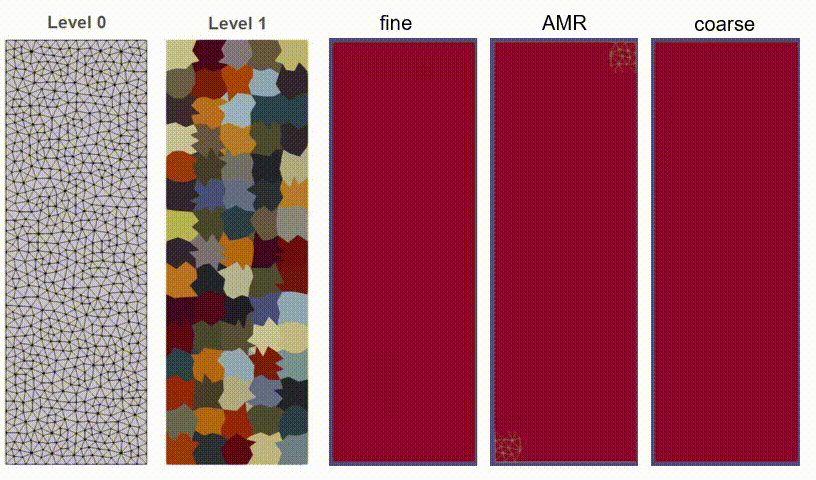A coupled description of flow and thermal-reactive transport is spanning a wide range of scales in space and time, which often introduces a significant complexity for the modeling of such processes. Subsurface reservoir heterogeneity with complex multi-scale features increases the modeling complexity even further. Traditional Algebraic Multiscale techniques are usually focused on the accuracy of the pressure solution and often ignore the transport. Improving the transport solution can however be quite significant for the performance of the simulation, especially in complex applications related to thermal-compositional flow. The use of an Adaptive Mesh Refinement (AMR) enables the grid to adapt dynamically during the simulation, which facilitates the efficient use of computational resources. This is especially important in applications with reactive flow and transport where the region requires high-resolution calculations as often localized in space.
In this work, the aim is to develop an AMR framework for fully-implicit general-purpose reservoir simulation. The approach uses a multi-level connection list and can be applied to fully unstructured grids5. The adaptivity of the grid in the developed framework is based on a hierarchical approach. First, the fine-scale model is constructed, which accurately approximates all reservoir heterogeneity. Next, a global flow-based upscaling is applied, where an unstructured partitioning of the original grid is created. An example of two hierarchy levels for unstructured grid is shown in Fig.3. Once the full hierarchy of levels is constructed, the simulation is started at the coarsest grid. Grid space refinement criteria can be developed specifically for a particular application of interest. The multi-level connectivity lists are redefined at each timestep and used as an input for the next. 
Fig.3: Two-level hierarchy for AMR on unstructured grid and corresponding solution at fine, AMR and coarse scales with dynamic adaptivity of levels.
The developed Adaptive Mesh Refinement framework was implemented in DARTS6. The performance of the proposed approach is illustrated for geothermal applications shown in Fig.3. Here adaptive coarsening can accurately reproduce the fine scale solution using 40% less degrees of freedom which expected to bring a proportional improvement in simulation time due to the reduction in the size of the linear system.
